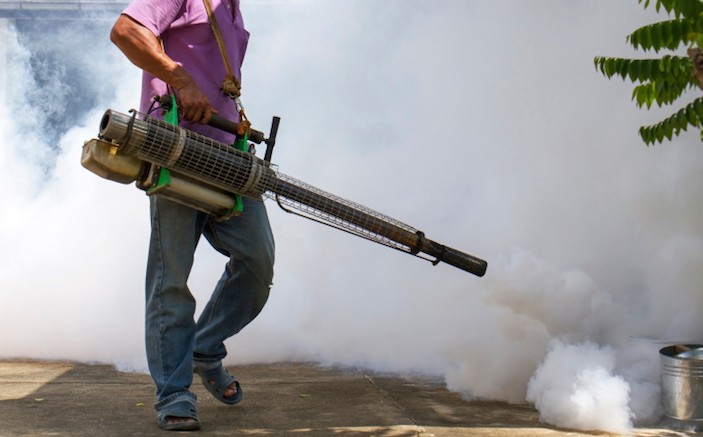Beyond the headlines, how are the real risks of Zika changing as mosquito season approaches? Here’s what you need to know about prepping for a new round of vector-borne illnesses.
We are all concerned about the Zika epidemic. So far in the continental United States, we have primarily seen imported cases. But as temperatures rise and mosquitoes become more prevalent, we should start to see an up-tick in locally-acquired cases.
As emergency physicians, the most common questions we get about Zika are “What is the real risk of Zika and what can we do to prevent it?” The risk of contracting Zika, of course, depends upon exposure to the mosquitoes carrying the virus and upon the measures taken to combat mosquito bites. Currently there is a low likelihood of contracting Zika within the continental U.S. Furthermore, the risk of developing a severe illness due to Zika infection is quite low as it is typically a mild illness with fever, rash, joint pain, and conjunctivitis. There are, however, two major complications associated with Zika infection. A small number of people infected with Zika virus will develop Guillain–Barré syndrome (GBS), and infected pregnant women run the risk of having fetal anomalies including microcephaly.
The Aedes aegypti mosquito, which carries Zika, is found in the continental U.S. and can also spread yellow fever, dengue, and chikungunya. Prior to April 2015, Zika had not been seen in the Americas, but since that time it has rapidly spread upward from Brazil and there are now cases throughout South and Central America. Conventional thought is that the Zika virus was imported to the Americas by travelers to the 2014 FIFA World Cup in Brazil.
Zika’s origins have caused concerns for this upcoming summer, when literally millions of international travelers will descend upon Brazil for the Summer Olympics. Thankfully, the Games will take place in Rio de Janeiro, which is undergoing a massive mosquito eradication effort, and they’ll commence during Brazil’s winter, when temperatures are cooler. That said, the International Olympic Committee is still recommending that pregnant athletes not attend the games at all this summer.
The bottom line is this: millions of people will be traveling to Brazil for the Olympics and subsequent Para-Olympics. Most will not be limited to staying within Rio and may journey throughout the country before returning home. Those returning to the U.S. will arrive during prime mosquito season. If they carry the virus, they risk introducing it into the U.S. mosquito population. Since most people infected with Zika have mild to no symptoms, they will not realize they are potentially infectious.
As there is no treatment or vaccine currently available for Zika, the primary step in preventing the complications of Zika is to avoid infection. First and foremost, if a patient is pregnant or in a sexual relationship with someone who is pregnant, they should not travel to a Zika affected area. Zika cannot be transmitted by respiratory droplets, but it can be transmitted by sexual contact. The virus can be detected in the blood of infected persons for up to one week; however, there does not appear to be a risk to future pregnancies. If you are pregnant and you must travel to an area of Zika transmission, reduce your chance of infection by preventing mosquito bites and by using condoms.
Bug spray is an important adjunct to preventing mosquito bites. The most effective mosquito sprays are those containing DEET, picaridin or lemon eucalyptus oil. Although higher concentration or time-release formulations of DEET and pircaridin-containing sprays will last longer, all mosquito repellents need to be applied frequently. If using lemon eucalyptus oil, you must cover all exposed skin since, unlike DEET, it has no repellent activity in areas where it has not been applied. You can also pretreat your clothing, tents and sleeping sheets or bags with permethrin. Permethrin, a spray that can be applied to cloth, will last months and through multiple washings. It is safe for infants, young children and pregnant women. Clothes with factory impregnated permethrin are available from several companies that specialize in outdoor clothing.
Other precautions to help decrease the risk of contracting Zika include wearing pants and loose-fitting, long-sleeved shirts, and draining any areas of standing water that may act as a mosquito breeding grounds.
Again, remember that most people with a Zika infection have limited symptoms. Therefore, if you are returning from a Zika area, assume you have the virus for two weeks after your return and take precautions to prevent transmission via mosquitos or body fluids.
One of the most important things to understand about Zika is that Zika, dengue, and chikungunya are all viruses that are spread by the same mosquito. On initial presentation, all of these diseases may look quite similar with fever, a rash and arthralgias. The difference is that Zika is, for the most part, a mild disease that is dangerous only to pregnant women and the few who develop GBS. Chikungunya also has a low mortality, but the pain from the arthralgias can last for years and be devastating an d it can make young children very ill. Dengue can develop symptoms ranging from a mild illness to death. Dengue is responsible for thousands of deaths each year worldwide. An epidemic in the U.S. could be devastating.
Protecting yourself and your family from mosquitoes – and educating your patients – is critical to decreasing serious illness during the warmer months ahead.




1 Comment
Excellent article and advice. CR posted an article on recommended mosquito repellants in light of ZIKA at http://www.consumerreports.org/insect-repellents/mosquito-repellents-that-best-protect-against-zika/
I also love the idea that some countries are instituting “counter terrorism” measures against mosquitos that carry ZIKA (see http://www.nytimes.com/2016/02/13/health/prepare-for-guerrilla-warfare-with-zika-carrying-mosquitoes-experts-warn.html?_r=0). Basically it’s sexual warfare! (a life-affirming form…at least for humans)…though they are calling it entomological warfare. Let’s just hope those clever mosquitoes don’t evolve the ability to carry something even more malevolent.